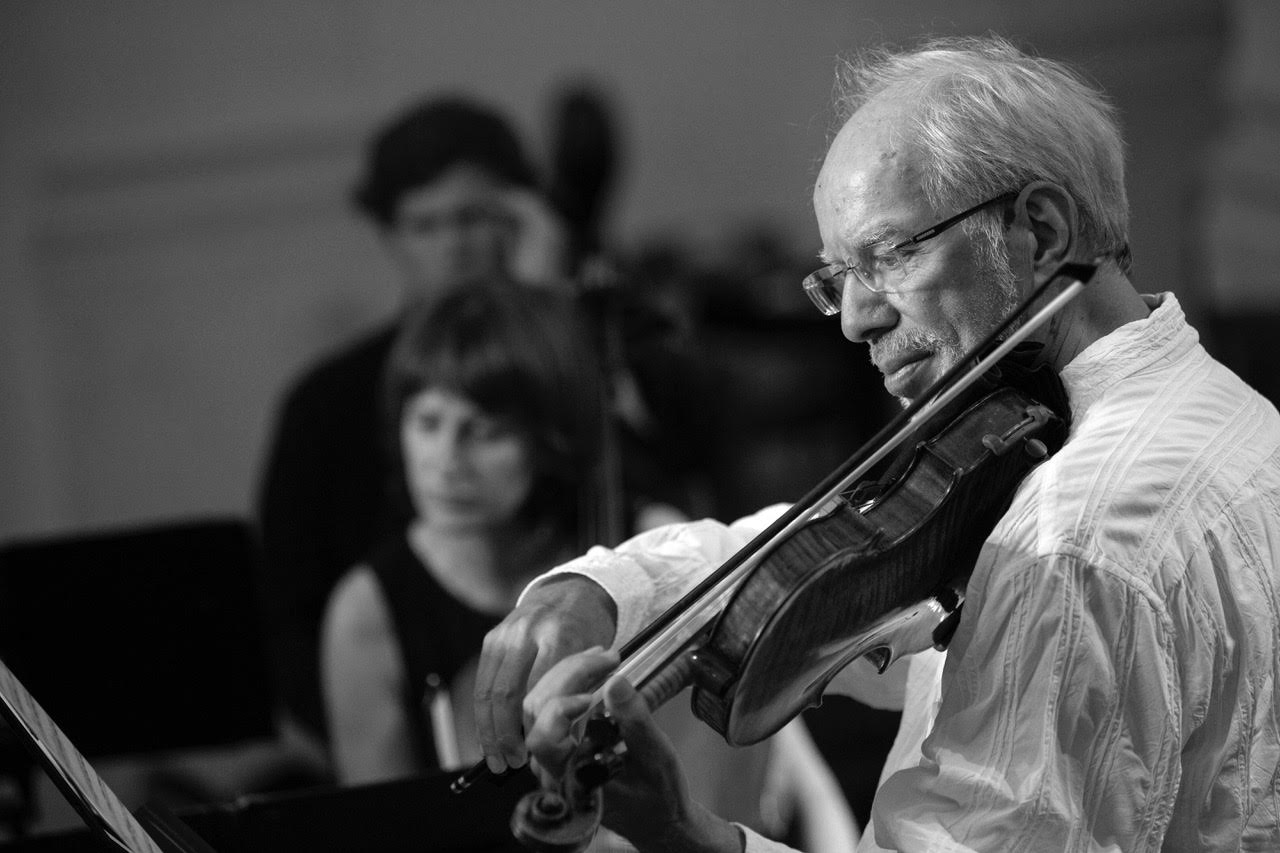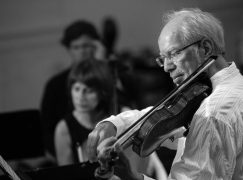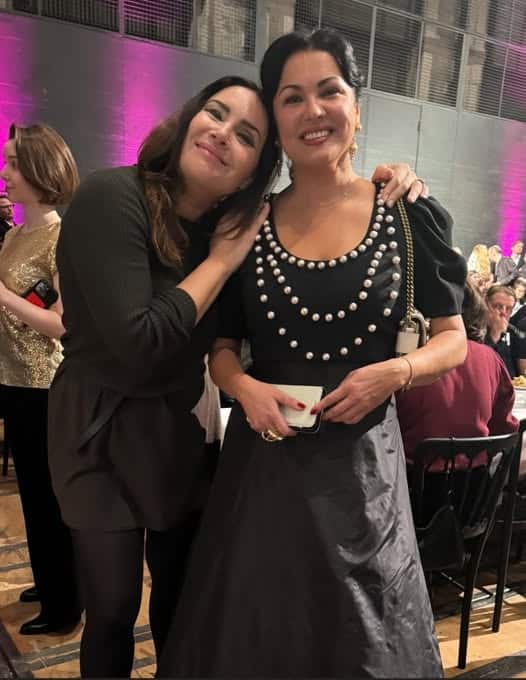Beethoven’s violin concerto was an instant flop, sometimes still is
mainWelcome to the 28th work in the Slipped Disc/Idagio Beethoven Edition
Violin concerto, opus 61 (part 3)
Musical masterpieces do not leap fully formed off the page. At its first performance in Vienna on December 23, 1806, Beethoven’s violin concerto was so poorly received that it may never have been heard again in his lifetime. The review in the Weiner Zeitung read:
With regard to Beethofen’s [sic] concerto, the opinion of all connoisseurs is the same: while they acknowledge that it contains some fine things, they agree that the continuity often seems to be completely disrupted, and that the endless repetitions of a few commonplace passages could easily lead to weariness. It is being said that Beethofen ought to make better use of his admittedly great talents…
It is reported that Beethoven was late in delivering the score to the soloist, leaving Franz Clement to sightread some pages, but the real reason for its failure was that the work as a whole went above the heads of its audience, who were used to the polite conventions of Haydn and Mozart and could not adjust to the open combat between soloist and conductor which make this concerto a milestone in the evolution of western music.
Beethoven was so disappointed by its rejection that he made a tame transcription for piano and orchestra. It was May 1844 before the violin concerto was taken up in earnest after the 12 year-old Joseph Joachim played it with his own cadenzas at the Philharmonic Society in London, with Felix Mendelssohn conducting. The concerto was ahead of its time, both musically and in its suggestion that soloist and conductor must square up to each other if the work is to succeed. Gidon Kremer, in the essay I quoted a couple of days ago, complains that too many conductors fail to earn their fee by simply following the violinist in everything.
Be that as it may, we are approaching a point where you have the right to expect firm recommendations from the recorded archives. In addition to the early birds listed yesterday, I should draw your attention to the 1959 performance by Isaac Stern with Leonard Bernstein and the New York Philharmonic, an interpretation highly praised in its time but irritating on repeated hearing for slow tempi and exaggerated pauses, especially in the middle movement. Stern’s 1975 New York recording with Daniel Barenboim conducting is lighter, brisker and considerably less affected. Barenboim returned to the concerto time and again with his Israeli pals Pinchas Zukerman and Itzhak Perlman, the former more slack than slick with the Chicago Symphony, and the latter flawless with the Berlin Philharmonic in 1989. The best of Perlman, however, is heard in his 1981 recording with Carlo-Maria Giulini and the Philharmonia, a performance that ushered the concerto into a digital era which, by exposing the slightest flaws of intonation, prompted soloists to cut back on risk. This is, nonetheless, a memorable, celestial reading by a formidable artist at the summit of his powers.
There are two more landmark recordings in the 20th century. In September 1979, the authoritarian Herbert von Karajan presented a 16 year-old girl as soloist in the Beethoven concerto in the Berlin Philharmonie. Anne-Sophie Mutter had been his protégée for three years. In the Beethoven concerto she achieved artistic maturity, albeit under the tight control of the old conductor, who set slow tempi and brooked no contradiction. Mutter’s playing is breath-taking in places, daring in its quietude and forcing the orchestra to play at her volume. The DG release was an overnight best-seller. Some commentators identified Mutter as the first German talent to emerge on the violin since 1933. She recorded the Beethoven twice more, with Karajan and Kurt Masur, but never with the same élan.
The other landmark could hardly be more different. I happened to be present in June 1992 when the bad boy of British music Nigel Kennedy recorded the Beethoven concerto in a north German radio studio with the most unmaestro-like of great conductors, Klaus Tennstedt. Kennedy was at his most awkward with the recording crew and Tennstedt was at his most impassive. It did not augur well. But the spark between them was unmistakeable and the performance, very slow as it was, caught fire. Kennedy’s playing in the cadenza of the finale is the best I ever heard from him. The recording, if I remember rightly, sold 100,000 copies in a week. It remains a cracking performance. The only living violinist to match the sales of Mutter and Kennedy is the German-American David Garrett, in a 2011 performance of self-indulgent exaggeration. The last sales figure I heard was close to half a million. There is no accounting for bad taste.
Although the concerto is a virtuosic showpiece, a number of excellent concertmasters have stepped up to show that they are as good as any soloist. Two recorded the concerto with Bernard Haitink – Toronto’s Steven Staryk and, more reticent, the Concertgebouw leader Hermann Krebbers whose playing is dignified by moderation and unassuming mastery.
In the 21st century I am drawn to Nikolaj Znaider’s marvellously assured and musically refined 2005 recording with the somewhat less impressive Israel Phil and to Janine Jansen, crisp and commanding in Bremen in 2009. Among the period instrument takes, Thomas Zehetmair’s 1997 collaboration with Frans Brüggen challenges the ear constantly with surprising speeds and phrasing. There is also a heartstring-tugging Patricia Kopatchinskaja recording dated 2009 (not on Idagio) with the Orchestre des Champs-Elysées and Philippe Herreweghe, a favourite with many professionals. Nicola Benedetti and Viktoria Mullova aslo have their fans.
All of which brings me inexorably back to Gidon Kremer. The Latvian violinist recorded the concerto twice – in a closly argued 1995 dialogue with his favourite conductor Nikolaus Harnoncourt and, a dozen years earlier, in a shortlived recording with Neville Marriner. The unique facet of this release was the cadenza. It’s by the late-Soviet composer Alfred Schnittke and it is made up of snatches of every major violin concerto from J S Bach to Alban Berg. It’s a phenomenal composition, unbelievably tough to play, and it gives everything one knows about the Beethoven concerto a thorough window-cleaning. Best of all, it throws one of those rare bridges across the whole of music history for listeners to contemplate at leisure,
Audiences, needless to say, hated it. The record label deleted it and I have never heard it since in a concert hall (although I gather Lisa Batiashvili has given some recent performances). Happily, it’s here on Idagio…. and I’m still transfixed by it.
So, final choices:
Kreisler 1926
Wolfsthal 1929
Menuhin 1947
Neveu 1949
Milstein 1972
Mutter 1979
Perlman 1981
Kremer 1982
Jansen 2009







Comments